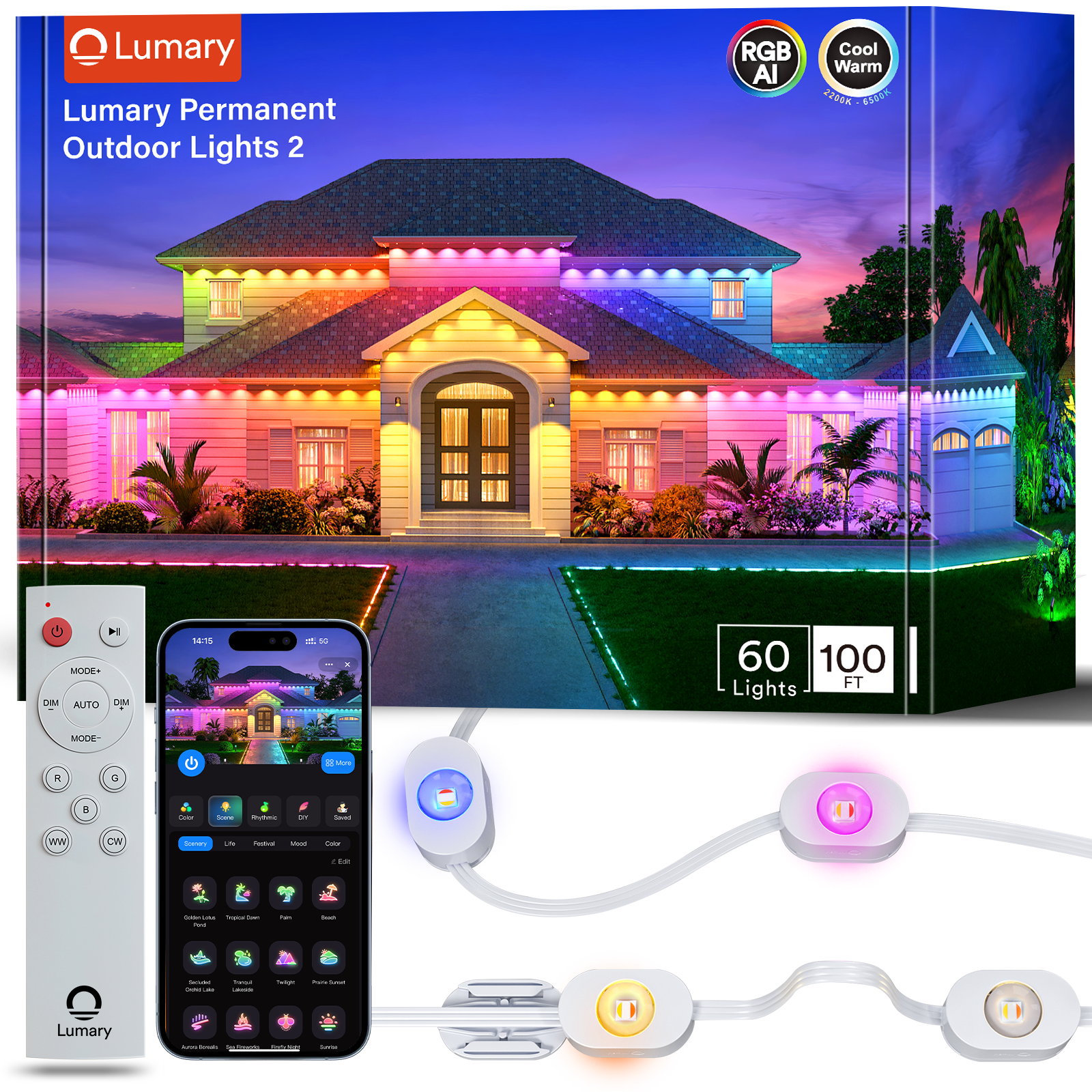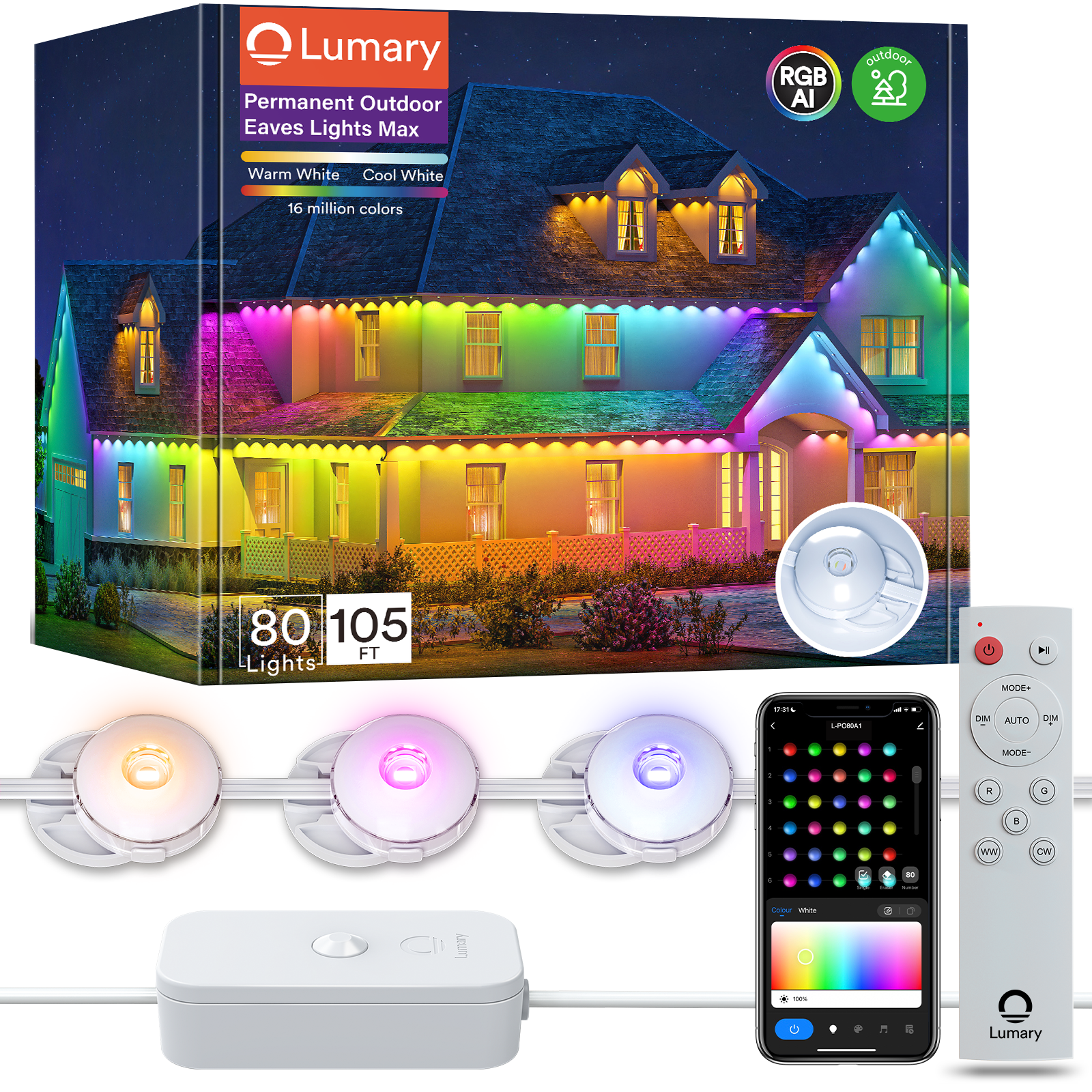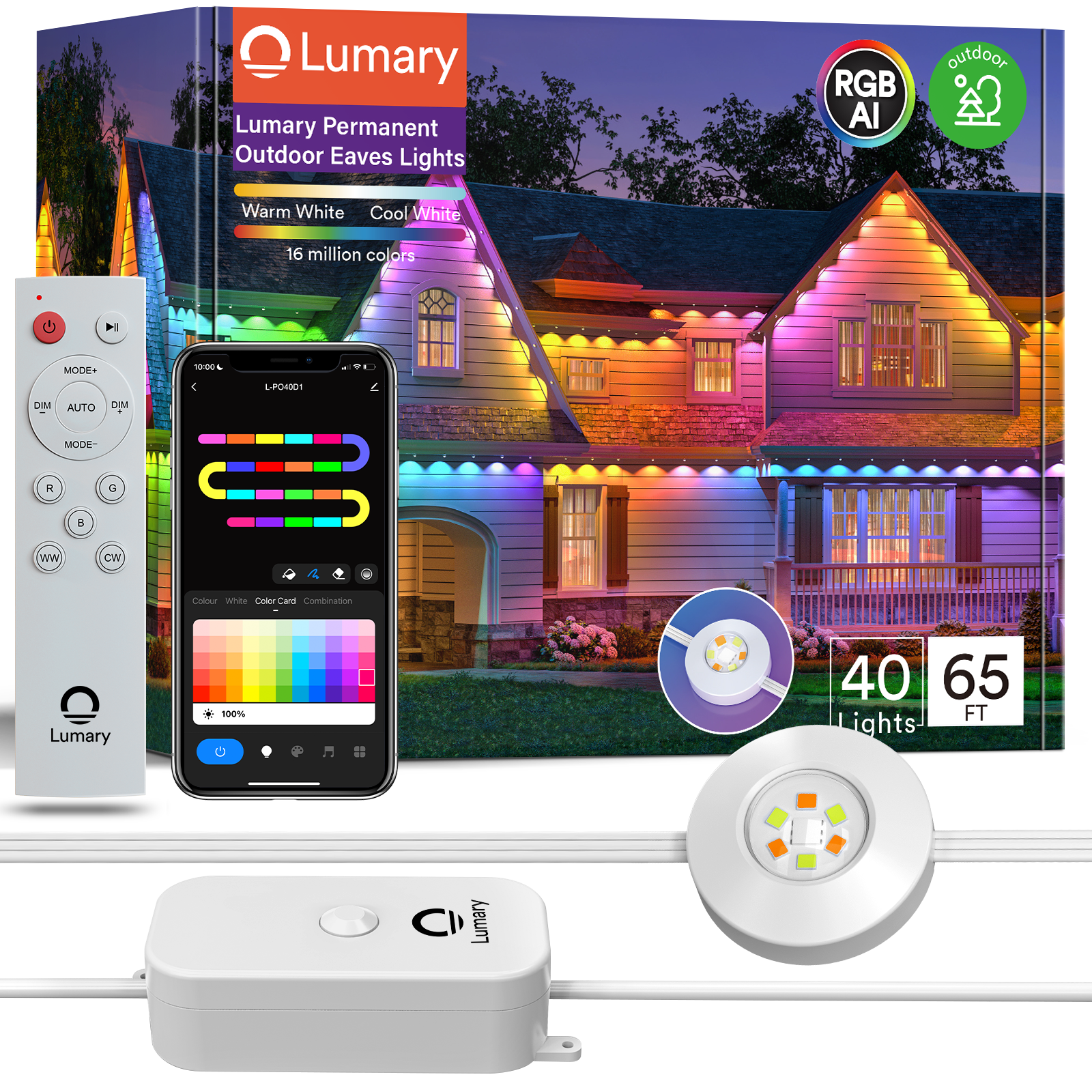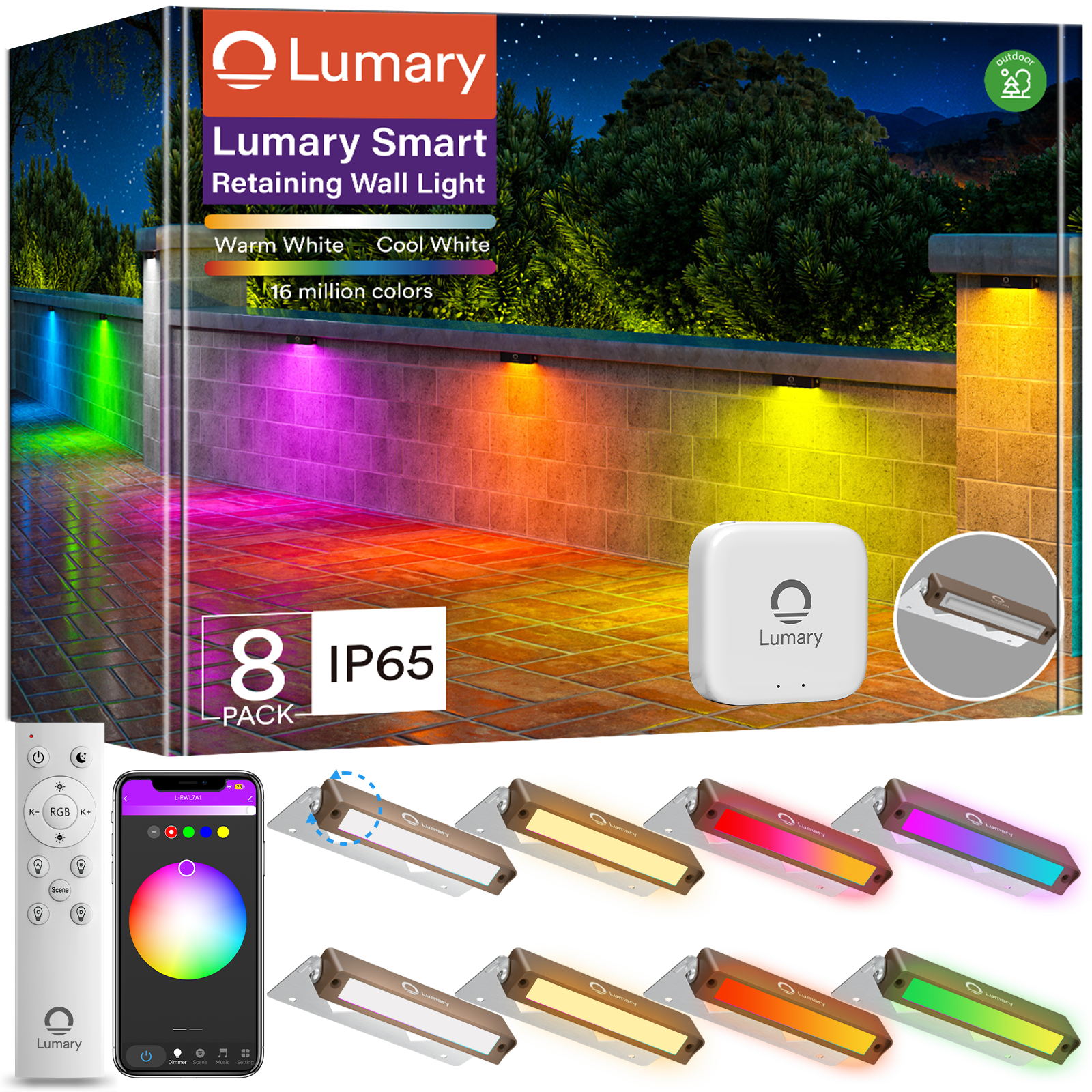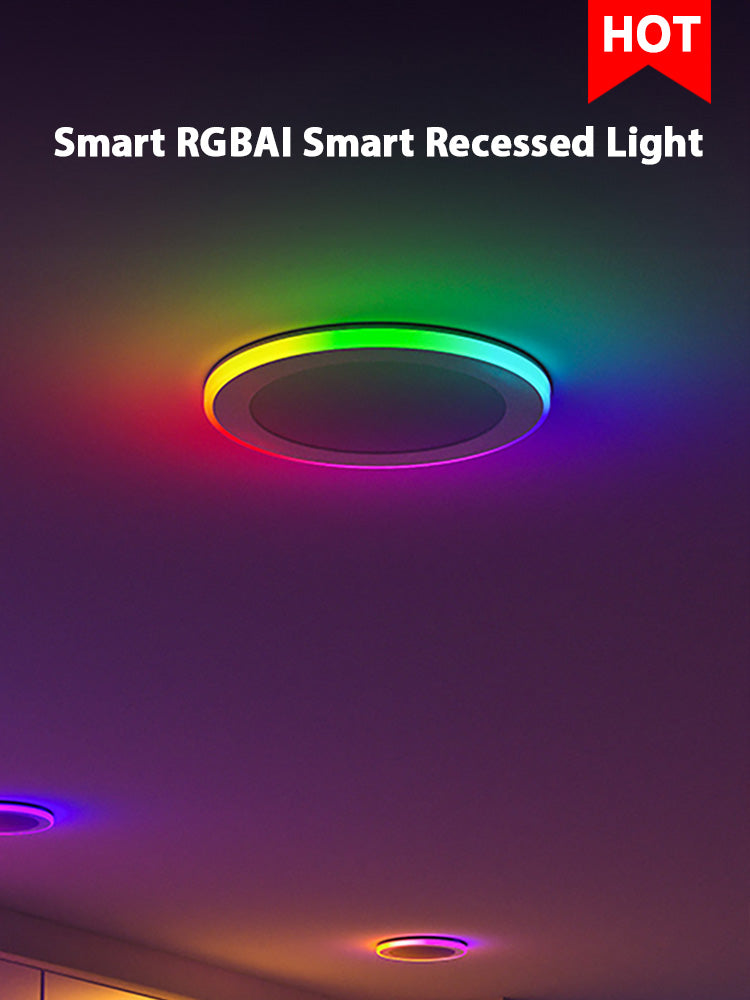Choosing the right LED landscape lighting can change your outdoor space. It’s not just about making your garden brighter; it’s about creating a cozy and beautiful look. Did you know outdoor lighting can make your home seem 20% more valuable? Also, LED landscape lighting is popular because it lasts longer. It requires less care and saves you money while enhancing the beauty of your garden.
LED landscape lighting is a smart pick for many reasons. It uses 80% less energy than regular bulbs and can last up to 50,000 hours. This means fewer changes and lower energy costs. Whether lighting paths, water features, or decks, good LED landscape lighting can make your yard magical and functional.
Key Takeaways
-
LED lights make gardens look nicer and may raise home value.
-
Check your garden's size and shape to pick good lights.
-
Think about why you need lights—safety, mood, or plant care.
-
Use pathway lights, spotlights, and string lights for a cozy yard.
-
Pick solar, wired, or battery lights based on your garden's upkeep.

Assessing Your Garden Space
Evaluating Garden Size and Layout
Before picking lights, check your garden’s size and shape. Is it a big yard with different areas or a small cozy spot? Knowing the layout helps you decide where lights will work best.
For tiny gardens, small LED panels can do wonders. A Chicago example showed how an apartment herb garden thrived with LED lights. The herbs grew quicker and tasted better, proving even small spaces benefit from good lighting. Bigger yards might need different lights for paths, main spots, and seating areas.
|
Case Study |
Location |
Description |
Results |
|---|---|---|---|
|
Urban Herb Garden |
Chicago |
Small apartment turned into a herb garden with LED lights. |
Faster herb growth and better flavor. |
|
Hydroponic Lettuce Farm |
California |
Commercial farm used LED lights. |
25% more yield and shorter growth time. |
|
Tropical Orchid Conservatory |
Florida |
Orchids grew under LED lights mimicking sunlight. |
Bigger blooms and brighter colors. |
|
Indoor Tomato Garden |
Ontario |
Basement garden with LED lights. |
Healthier tomatoes grown outside normal seasons. |
Identifying Features to Highlight
Every garden has special parts worth showing off. Think about what makes your space unique. Is it a pretty flower bed, a stone path, or a water fountain? Knowing these helps you choose where to place lights.
For instance, a Buford, Georgia, case study showed how LED lights made regular gardens look amazing. By lighting up key features, the garden became a cozy space to enjoy anytime. Whether it’s a fountain or colorful plants, LED lights can make your garden shine.
Defining the Purpose of Lighting
What do you want your lights to do? This is important when choosing LED lights for your garden. Do you need safer paths and steps? Or do you want a warm vibe for evening hangouts?
LED lights are flexible and fit many needs. Studies show they help plants grow, save energy, and allow year-round farming. If plant health is your goal, pick LEDs that adjust light colors for growth. For decoration, string lights or spotlights can add charm to your garden.
|
Aspect of LED Lighting |
Description |
|---|---|
|
Plant Growth Optimization |
LEDs adjust light colors to help plants grow faster. |
|
Energy Efficiency |
LEDs use less power, cutting costs and saving energy. |
|
Customizable Light Spectrum |
You can change light colors to match plant needs. |
|
Year-Round Crop Growth |
LEDs let you grow crops all year, no matter the weather. |
|
Research Sustainability |
LEDs last longer and create less heat, helping research. |
Tip: Decide your lighting goals before buying LED lights. This helps you pick the best ones for your garden’s needs.
Exploring LED Landscape Lighting Styles
Picking the right lighting style can change your garden’s look. Each type has a special use, like lighting paths, showing off features, or making spaces cozy. Let’s check out some popular styles and how they improve your outdoor area.
Pathway Lights for Navigation
Pathway lights are great for safety and style. They brighten paths, making them easier to walk on at night. These lights sit low and give off a soft glow.
Use them to line walkways, driveways, or garden edges. Solar-powered LED pathway lights are eco-friendly and simple to use. They charge in sunlight and turn on by themselves at night. Plus, they’re easy to set up—no wires needed!
Tip: Place pathway lights evenly for a neat look. Too many can feel crowded, and too few leave dark spots.
Spotlights for Focal Points
Spotlights are ideal for highlighting special garden features. Shine them on trees, statues, or fountains for a dramatic effect.
Unlike pathway lights, spotlights can be adjusted to aim light where needed. They’re useful for decoration and security. For instance, you can light up a large area or focus on a wall.
Here’s a quick comparison of spotlights with other lighting styles:
|
Feature |
Well Lights |
Spotlights |
String Lights |
|---|---|---|---|
|
Installation |
In-ground, permanent |
Adjustable, surface |
Temporary, hanging |
|
Aesthetic |
Subtle, upscale |
Bold, practical |
Casual, festive |
|
Maintenance |
Low |
Moderate |
High (weather-sensitive) |
|
Best For |
Trees, statues, walls |
Wide areas, security |
Patios, pergolas |
Spotlights are bold and practical, making them a favorite for both looks and function.
String Lights for Ambiance
String lights add warmth and charm to your garden. Hang them on pergolas, wrap them around trees, or drape them along fences for a festive vibe.
These lights are perfect for parties or cozy evenings. They also highlight garden designs and make spaces feel welcoming. Did you know decorative lights, like string lights, use about 25% of home lighting energy? This shows how much people love creating ambiance.
-
String lights make outdoor spaces cozy and stylish.
-
They’re popular for events, adding charm to gatherings.
-
More people use them to create inviting outdoor areas.
Fun Fact: String lights aren’t just for holidays. Many people use them all year to decorate patios and gardens.
By mixing pathway lights, spotlights, and string lights, you can create layers of light that make your garden both beautiful and useful.
Underwater Lights for Water Features
Underwater LED lights can make your garden's water features amazing. Whether it’s a pond, fountain, or pool, these lights add beauty and usefulness. Picture a glowing fountain or a softly lit pond at night. These lights are not just pretty—they’re practical too.
They help you see better around water in the dark. This is important for safety, especially near pools or walkways by water. Picking the right underwater LED spotlights makes water areas safer and more welcoming. For example, public pools use these lights to help swimmers see clearly, lowering accident risks.
Here’s a simple look at what underwater LED lights can do:
|
Feature |
Description |
|---|---|
|
Aesthetic Appeal |
Makes water features look stunning with cool effects. |
|
Safety Enhancement |
Helps people see better, keeping swimmers and visitors safe. |
|
Customizable Lighting |
Offers fun options like color-changing lights for special occasions. |
These lights also let you set the mood in your garden. Choose colors and effects to match your event or feelings. For example, color-changing lights can make parties lively or evenings peaceful.
Tip: Place underwater lights carefully to show off the best parts. Highlight flowing water or the edges of a pond for a great effect.
Deck and Step Lights for Safety
Deck and step lights are key to making outdoor spaces safe and useful. They light up stairs, decks, and raised areas, helping prevent trips and falls. Did you know falling on stairs happens twice as often as on flat ground? Good lighting can help stop these accidents.
Adding LED deck and step lights boosts safety and style. They create a cozy glow that makes your garden look inviting. Plus, they save energy and last a long time, so you won’t need to replace them often.
Bright stairs can stop serious injuries, especially when going down. Poor lighting causes missteps, but LED lights make each step clear. You can also use them to outline your deck, giving it a neat and polished look.
Here’s why LED deck and step lights are great:
-
They make stairs safer by reducing falls.
-
They add style and charm to your garden.
-
They save energy and cost less over time.
Note: Space deck and step lights evenly for the best results. This avoids dark spots and keeps everything well-lit.
By using underwater lights with deck and step lights, you can make your garden both beautiful and safe. These lights work together to improve your outdoor space while offering practical benefits.
Picking the Best Power Source for LED Lights
Choosing the right power source is key for your LED landscape lighting. It affects how well the lights work, their energy use, and upkeep. Let’s look at three main types: solar-powered, wired, and battery-operated lights.
Solar-Powered LED Lights
Solar-powered lights are eco-friendly and save money. They charge with sunlight during the day and turn on at night. These lights work well for paths, gardens, and driveways. For example, solar post-top lights add style and enough brightness for walking safely.
Need brighter lights for bigger spaces? Solar floodlights are a smart pick. Many have motion sensors, making them great for security. While they cost less upfront, they also lower energy bills over time.
Did you know outdoor solar LED garden lights were worth $4.5 billion in 2023? Experts think this will grow to $12.8 billion by 2032 as solar tech improves and more people go green.
Tip: Place solar lights where they get lots of sunlight. This helps them charge fully during the day.
Wired LED Lights
Wired lights are super reliable and work consistently. They connect to your home’s electricity, so they don’t need sunlight or batteries. These lights are perfect for lighting large areas or for security.
For example, wired floodlights give steady, bright light with little energy waste. They cost more upfront but last longer and need less care. Plus, they focus light where needed, cutting down on light pollution.
|
Feature |
Wired LED Lights |
Solar Lights |
|---|---|---|
|
Energy Use |
Uses less energy |
Needs sunlight to work |
|
Durability |
Very durable and long-lasting |
Depends on battery life |
|
Cost |
Higher upfront, saves money later |
Cheaper to start |
|
Maintenance |
Low maintenance |
Batteries need replacing |
|
Light Pollution |
Focused light reduces waste |
Depends on setup |
Note: Wired lights need professional setup, but they’re worth it for long-term use.
Battery-Powered LED Lights
Battery-powered lights are the most flexible option. You can put them anywhere without worrying about wires or sunlight. They’re great for temporary setups or tricky spots.
The battery size affects how well these lights work. Bigger batteries mean longer-lasting light, even in bad weather or winter. This also means fewer replacements, which is better for the planet.
For instance, outdoor solar LED lights with larger batteries last longer and create less waste. They’re a great choice for dependable and eco-friendly lighting.
Tip: Check battery life before buying. This ensures your lights stay bright and last longer.
By knowing the pros and cons of each type, you can pick the best power source for your garden. Whether you want eco-friendliness, reliability, or flexibility, there’s an option that fits your needs.
Key Features of LED Landscape Lighting
Energy Efficiency and Cost Savings
LED lights use less energy and save you money. They need up to 80% less power than regular bulbs. This means lower electricity bills over time. For example, switching to LEDs can save you $325 compared to older lights.
LEDs also last a long time, so you won’t replace them often. This lowers maintenance costs and saves effort. They produce less heat, which is safer for plants and prevents overheating.
Tip: Choose LED lights with dimming options to save more energy. You can lower brightness when full light isn’t needed.
Durability and Weather Resistance
Outdoor LED lights are tough and handle bad weather well. They work in rain, humidity, and extreme temperatures. Many have waterproof designs, like sealed cases, to stop water damage.
Check the IP rating when buying LED lights. An IP65 rating or higher means they resist dust and water. LEDs are also tested to handle heat and freezing cold, so they work all year.
|
Metric |
Description |
|---|---|
|
IP Rating |
Protects against dust and water; IP65 or higher is best for outdoors. |
|
Rain Tests |
Ensures lights work during heavy rain. |
|
Heat Tests |
Checks if lights last in hot weather. |
|
Cold Tests |
Makes sure lights don’t fail in freezing temperatures. |
Note: For rainy areas, pick lights with extra waterproofing like special paint or sealed designs.
Smart Controls for Customization
Smart controls make LED lights easy to adjust. You can change brightness, pick colors, and set timers using your phone. This helps you create the right mood for any event, like a party or a quiet evening.
You can control your lights from anywhere with remote access. This means you don’t need to go outside to turn them on or off. Smart systems also save energy, cutting your electricity costs even more.
Fun Fact: Smart LED systems are simple to use, even for beginners. Their easy controls make customizing your lights fun and stress-free.
With smart features, you can make your garden look just how you want. Whether you want soft lighting or bright colors, smart controls give you full power over your outdoor lights.
Adjustable Brightness and Beam Angles
Adjustable brightness and beam angles make LED landscape lighting super useful. You can decide how bright the lights are and where they shine. This lets you set the mood for your garden, whether it’s a fun party or a calm evening.
Why Adjustable Brightness is Important
Different garden areas need different light levels. Adjustable brightness lets you dim lights for a soft glow or brighten them for safety. For example:
-
Pathways and steps: Bright lights help people see clearly.
-
Seating areas: Dim lights create a peaceful atmosphere.
-
Decorative features: Medium brightness highlights them without being too strong.
Tip: Choose LED lights with dimming features or smart controls. These make changing brightness easy with a remote or app.
How Beam Angles Change Lighting
Beam angles control how wide or narrow the light spreads. Narrow beams focus on things like statues or trees. Wide beams light up bigger spaces like patios or flower beds.
Here’s a simple guide to beam angles:
|
Beam Angle |
Best For |
Effect |
|---|---|---|
|
Narrow (15°-30°) |
Statues, trees, fountains |
Adds a dramatic spotlight |
|
Medium (30°-60°) |
Shrubs, small garden areas |
Balanced lighting |
|
Wide (60°+) |
Patios, walls, large spaces |
Soft, even light |
Note: Try different beam angles to see what looks best. You’ll be surprised how much it changes your garden’s appearance.
Using adjustable brightness and beam angles lets you design your garden lighting for any event. It’s like having your own lighting expert!
Installation and Maintenance of Landscape Lighting
Planning the Layout and Wiring
Before setting up your LED lights, plan the layout carefully. A good plan makes your garden look great and work well. Start by drawing your ideas on paper or using a design app. Mark areas you want to light, like paths, seating spots, or special features. This helps you pick the right lights and avoid too much brightness.
When planning wiring, think about power sources and hiding wires. Map out wire paths to keep them neat and safe. This improves your garden’s look and saves energy. Splitting your garden into zones makes controlling lights easier. For example, use timers or motion sensors to light areas only when needed.
Here’s a simple table of helpful tips:
|
Best Practice |
Description |
|---|---|
|
Energy Efficiency |
LEDs use less energy and last much longer than old bulbs. |
|
Strategic Planning |
Timers or sensors save energy by using lights only when needed. |
|
Electrical Safety |
Hiring experts ensures safe and proper installation. |
|
Zoning |
Dividing areas allows better control of lighting. |
|
Circuit Planning |
Balancing power prevents overloads and keeps things safe. |
|
Voltage Drop Prevention |
Thicker wires or higher voltage systems stop power loss over long distances. |
Tip: Plan your wiring before starting. It saves time and avoids mistakes later.
Proper Mounting and Stability
Mounting your LED lights securely is very important for safety and durability. Whether it’s pathway lights, spotlights, or underwater lights, proper setup keeps them steady and working well. Use strong materials and follow safety rules to avoid problems.
For example, safety standards like UL 8750 and IEC 60598 protect against shocks and fire risks. If placing lights near water, make sure they’re waterproof and meet CE marking safety rules.
Here’s a table of key safety standards to know:
|
Standard |
Focus |
Description |
|---|---|---|
|
IEC 60598 |
Construction, Performance, Safety |
Protects against shocks, fires, and damage. |
|
UL 8750 |
Safety of LED Equipment |
Ensures safe wiring and temperature control. |
|
CE Marking |
Health, Safety, Environmental Protection |
Confirms safety for EU standards. |
|
RoHS |
Hazardous Substances |
Limits harmful materials in LED production. |
Note: Use weatherproof mounting tools and check for loose lights often to keep them stable.
Cleaning and Maintenance Tips
Cleaning your LED lights keeps them bright and lasting longer. Dirt can block light and make them less efficient. Regular cleaning brings back full brightness and stops overheating.
Use a soft cloth to clean the lights and check for damage. Look at seals to ensure they’re still waterproof, especially after bad weather. Simple care like this makes your lights last longer and keeps your garden looking great.
Here are some easy maintenance tips:
-
Clean lights often to stop dirt buildup.
-
Check for damage while cleaning.
-
Inspect seals to prevent water leaks.
-
Use soft tools to avoid scratching the lights.
Tip: Do a maintenance check every few months. This helps catch problems early and keeps your lights working well all year.
Picking the right LED lights can change your outdoor area. Look at your garden, choose the best LED types, and pick a good power source. This will make your space useful and welcoming. Focus on energy-saving and strong lights to get the best value.
Start now! Plan your garden lighting and see how LED lights turn your outdoor space into something amazing.


